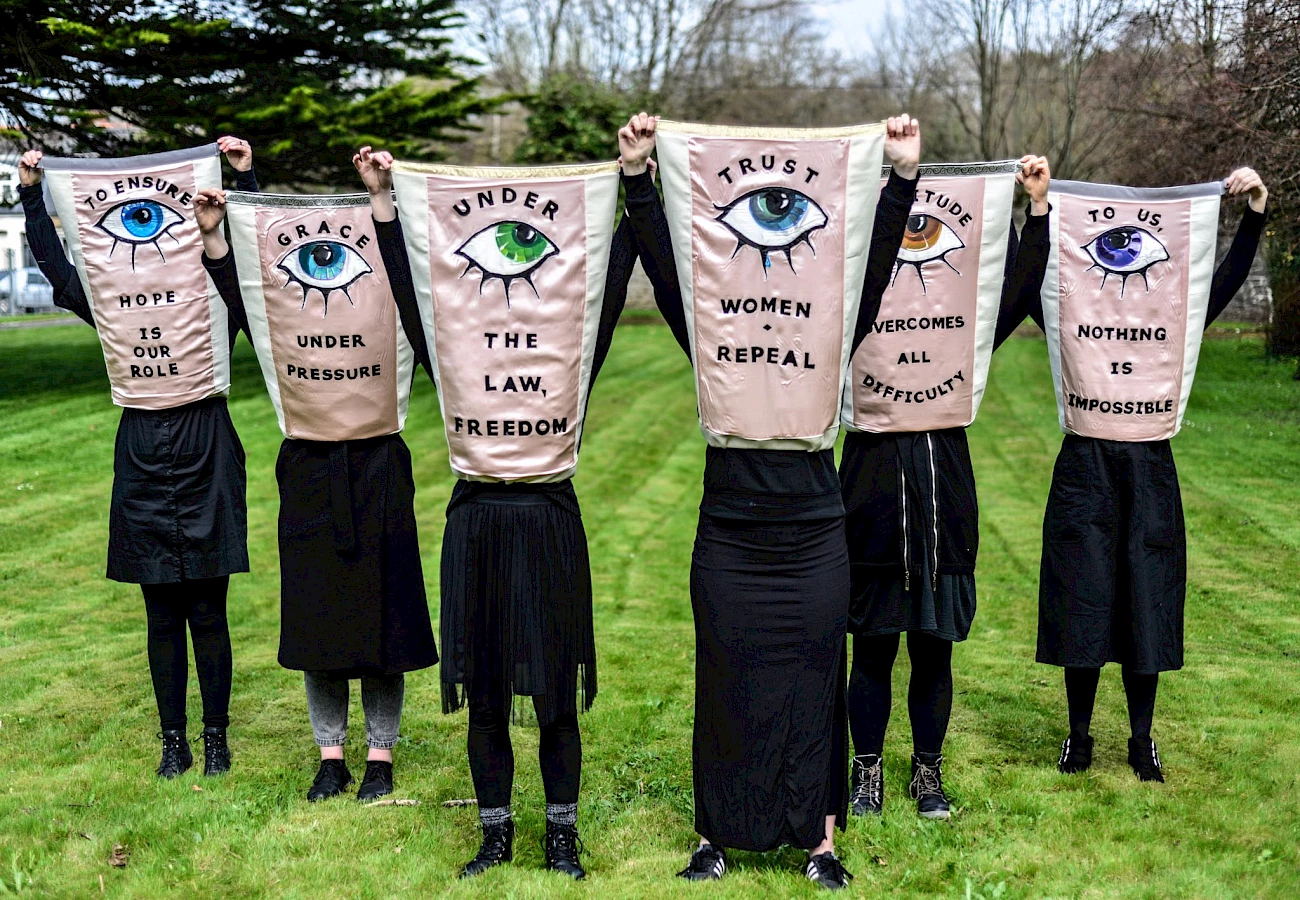
Rachel Fallon, Aprons of Power, 2018. Apron wearers: Lynn-Marie Dennehy, Emma Finucane, Eleanor Phillips, Kim Gleeson, Nuala Clarke, and Nicole Flanagan. Performance as part of the Artists’ Campaign to Repeal the Eighth Amendment, shown at EVA International 2018. Photo/courtesy: Darren Ryan.
At the time of writing, we are a month away from a referendum in Ireland on the Eighth Amendment to our Constitution, and it is difficult to imagine any conversation about art and feminism here that does not depart from the immediate urgency of this point.
This Eighth Amendment, Article 40.3.3º, was introduced to the Constitution in 1983 and establishes the equal right to life of the 'mother' and the 'unborn'. In practice this means a constitutional ban on abortion (unless the mother's life is at risk), but not only that: it means that any person who becomes pregnant enters a zone of exception that qualifies their right to bodily autonomy.1
The holes in the practicability of this law have been painfully illustrated with a series of tragedies since it was introduced. These include Miss X, a teenage rape survivor who received an injunction from the State forbidding her to travel to the UK to access abortion; Savita Halappanvar, who died of sepsis after being refused a medical termination; Ms. Y, an asylum seeker who was pregnant as a result of rape and who was suicidal, was refused a termination, forcibly fed and eventually delivered her baby by Cesarean section; Miss P, a woman who was braindead, eighteen weeks pregnant and who was kept on life support against her family's will until a court order was granted. In 2016, in the case of Amanda Mellet, the United Nations Human Rights Committee found that Ireland's abortion laws violated rights to freedom from cruel, inhuman or degrading treatment, as well as the right to privacy in favour of the complainant. At the time of writing, it is a criminal offence to procure abortion in Ireland or help someone to do so. The criminal penalty is a prison sentence of up to fourteen years. The circumstance of the pregnancy (such as rape, incest or the development of a fatal foetal abnormality) is of no legal consequence.
This makes Ireland a dangerous place to be born with a body that can become pregnant. It is a strange and sometimes unbearably hypocritical state to be born into: since 1992, when the Thirteenth and Fourteenth Amendments were introduced, we have been granted the right to travel (for abortion) and the right to access information (about where to procure an abortion). However these 'Irish solutions to Irish problems' cannot be accessed by all pregnant people: not everyone can afford to travel, and not everyone living here has the documented status that would allow them to do so, either. So the Eighth Amendment continues to exert a threat over people living in Ireland who can become pregnant, whether it is a wanted pregnancy or not. Abortion is also illegal in Northern Ireland, even though it was legalised in the rest of the UK in 1967. While the legal territories, legislative frameworks and political situations are different in the Republic and Northern Ireland, all of us on the island are in the same oppressive boat.
The Abortion Rights Campaign (ARC), a grassroots movement founded in 2012, has been organising a March for Choice every year in Dublin since then and has been a huge galvanising force for the campaign to secure reproductive rights for people living in Ireland today, through access to free, safe and legal abortion. ARC has continually aspired to be inclusive and representative of minority groups, including sex workers, the LGBTQI community, and those marginalised through poverty, disability or immigration status. In effect, this has meant each march has transformed the streets into an intersectional feminist academy. Every year it has increased in size. The individual placards continue to get more defiant, angry, and funny – it has been a huge moment of public solidarity, both for people deeply involved in the campaign and others who become activated through it. The number of groups marching also continues to grow: organisations like the National Women's Council, trade unions and student organisations, political parties, left-wing groups and self-organised groups such as Termination For Medical Reasons (TFMR), Doctors for Choice, Lawyers for Choice and Midwives for Choice. Since 2015, there has also been an Artists' Campaign to Repeal the Eighth Amendment, marching alongside other workers.
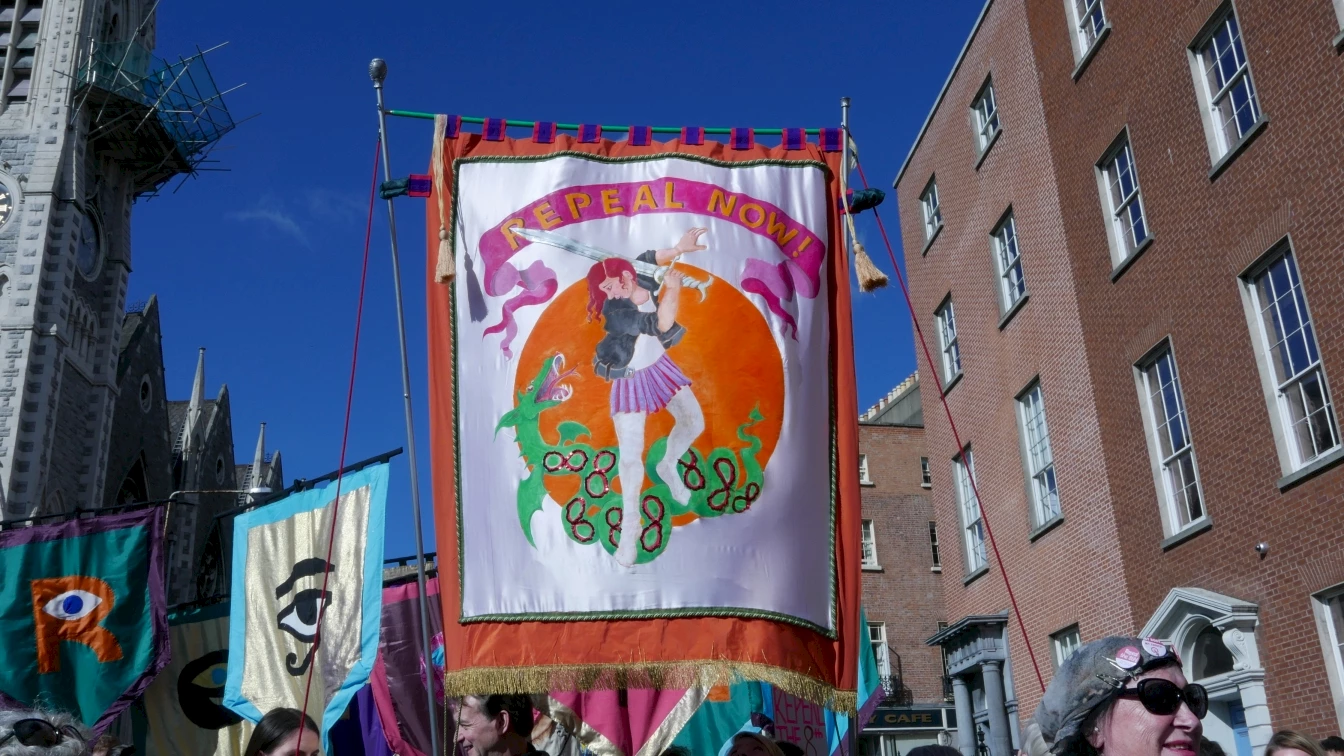
Artists’ Campaign to Repeal the Eighth Amendment at the March for Choice, Dublin, September 2017. Photo: Natasha Waugh. Courtesy Artists’ Campaign.
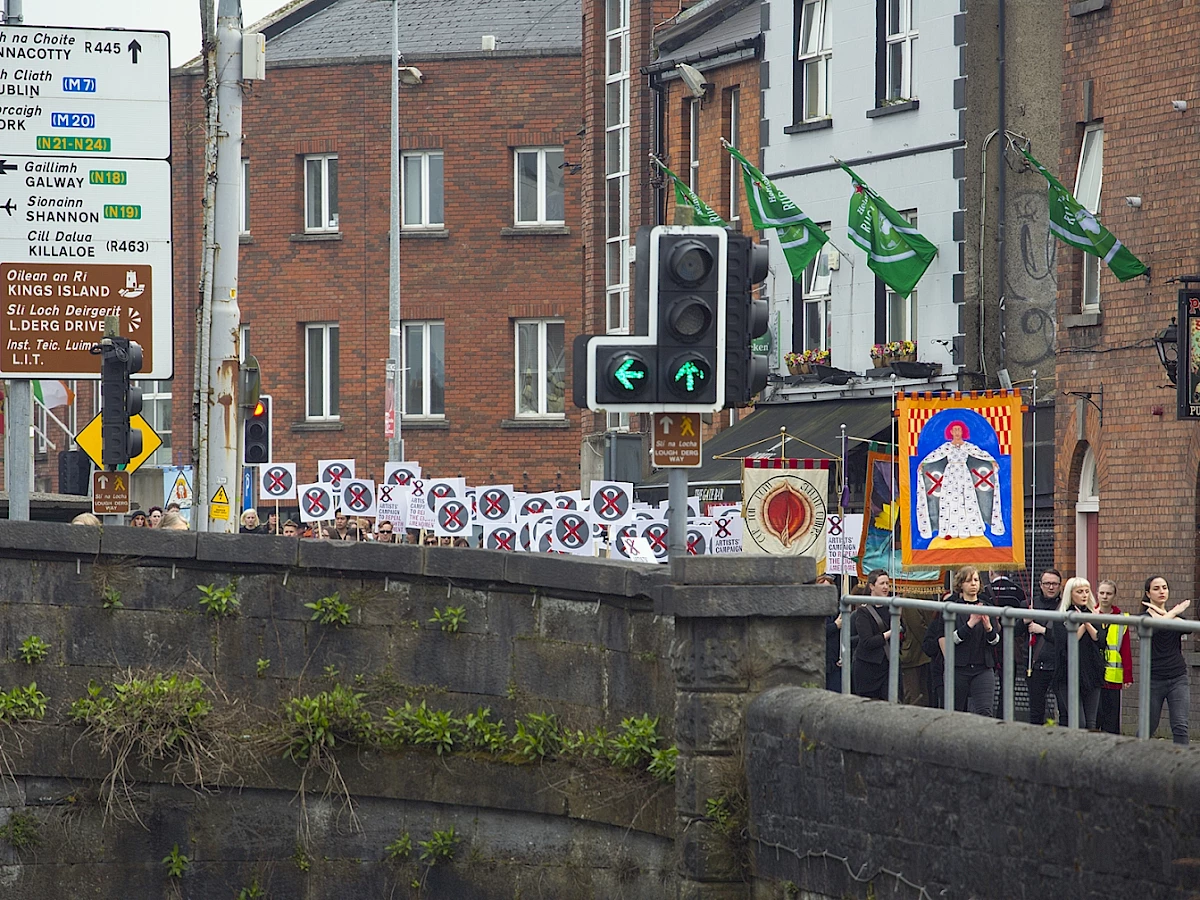
Artists’ Campaign to Repeal the Eighth Amendment at EVA International, Limerick, April 2018. Photo: Deirdre Power. Courtesy Artists’ Campaign.
The Abortion Rights Campaign builds on decades of work by feminist activists based in Ireland, many of whom campaigned against the introduction of the Eighth Amendment in 1983 and have been fighting for its repeal ever since. I feel a deep sense of gratitude to these women, some of whom I have met, learnt from, have become friends or been lucky to work with, as well as those whose contribution remains anonymous or unknown. This gratitude is not only emotional, it is also intellectual and political: feminism produces this kind of kinship. Every year, we can see this kinship in solidarity marches organised around the world to coincide with the March for Choice and the performances of Speaking of IMELDA, the direct action group based in London. And it can be found in the many covert and sometimes illegal forms of support women have offered each other throughout the years. For instance, the Irish Women's Abortion Support Group, based in London, who helped fundraise for Irish women to travel to access abortion in England in the 1970s (and met those women when they arrived off the boat, gave them a place to stay or brought them to clinics); people helping access abortion pills now; volunteer groups like needabortionireland.org offering kindness and practical help (Rossiter 2009). These networks of solidarity and support extend beyond the borders of the state, running on unquantifiable volumes of phone calls, stickers on the backs of toilet doors, volunteer labour and care.
The oppressive legal reality of the Eighth Amendment collapses together categories of 'woman' with 'mother' and exists within a national culture where the figure of the woman has traditionally been used as a personification of the state and invoked as a symbol of political hope. In women's lived experiences, maternity has been a particular focus of state control, in close collaboration with Catholic institutions: so-called 'fallen women' were incarcerated in Magdalene Laundries up until 1996 when the last of these institutions closed; symphysiotomy, a surgical practice in which the pelvis is 'unhinged' to permit unobstructed childbirth (instead of Caesarean section), was practiced in Ireland until 1984, often without the mother's advance knowledge or consent.2 The contrast here between woman/ mother as symbol and woman/ mother as person is perverse, and has not been lost on artists of all art forms who are concerned with the labour of representation in our daily working lives.
Recent anthologies edited by Una Mullally and Kathy D'Arcy publish some of the urgent work that has been produced through and alongside the Repeal campaign movement by poets, writers, visual artists and journalists (Mullally 2018; D'Arcy 2018). These books also contain some of the testimonials and acts of storytelling which have been so important in the campaign as a way of addressing the stigma surrounding abortion in Ireland. The intensity of this public disclosure, activating the personal as political, is one of the tools that some women have courageously chosen to use in order to advance the campaign over the years. Irish exile and diaspora is the other side of this coin: Ireland has been simply unliveable for some women, sexual and gender minorities since the foundation of the state. This includes artists like Edna O'Brien, whom I remember learning about while I was growing up: in 1962 her novel The Country Girls was banned, burned and denounced from the pulpit. It is odd to remember and talk about these kinds of histories and how they manifest in the present within the symbolic economy of contemporary art. It feels dissonant to be met with looks of pity when you are talking at an opening in Stockholm and explaining through your privileged teeth why everyone 'at home' on International Women's Day in 2017 was on strike as part of the campaign – to demand the government set a date for the referendum. Ireland has changed since the 1960s but the legal anachronism is real; bodily autonomy is still not granted to people who are pregnant in Ireland, north or south.
The academy can be animated by feminist thinking and activist practice. Many years after first coming into contact with feminist ideas (and methods) when I studied at art college, I see this as the defining experience of value I can still draw from – in fact until recently I was lucky to work alongside one of my teachers from this time, Louise Walsh. These are the more implicit and sometimes unauthored registers of how feminism can be enacted in art and education: through ethical practices of teaching and learning, collaboration and research. Feminists know well the task of working with gaps and exclusions throughout history: working with the materials that are not there in the archive, as well as making the most out of what is. Scholarship and art production in Ireland, explicitly feminist and not, has been sharpened with these practices of suspicion and close attention to the invisible. Historian Mary McAuliffe, referring to her current research on same-sex relationships between women of the revolutionary period in Ireland explains: "The facts [about their relationships] comes through in diaries and memoirs and private correspondence about them – it isn't in the public record... the histories of sexuality for all women are pretty hidden. But if you're anything other than straight, it's really difficult to find those histories" (McAuliffe quoted in McGrattan 2016).
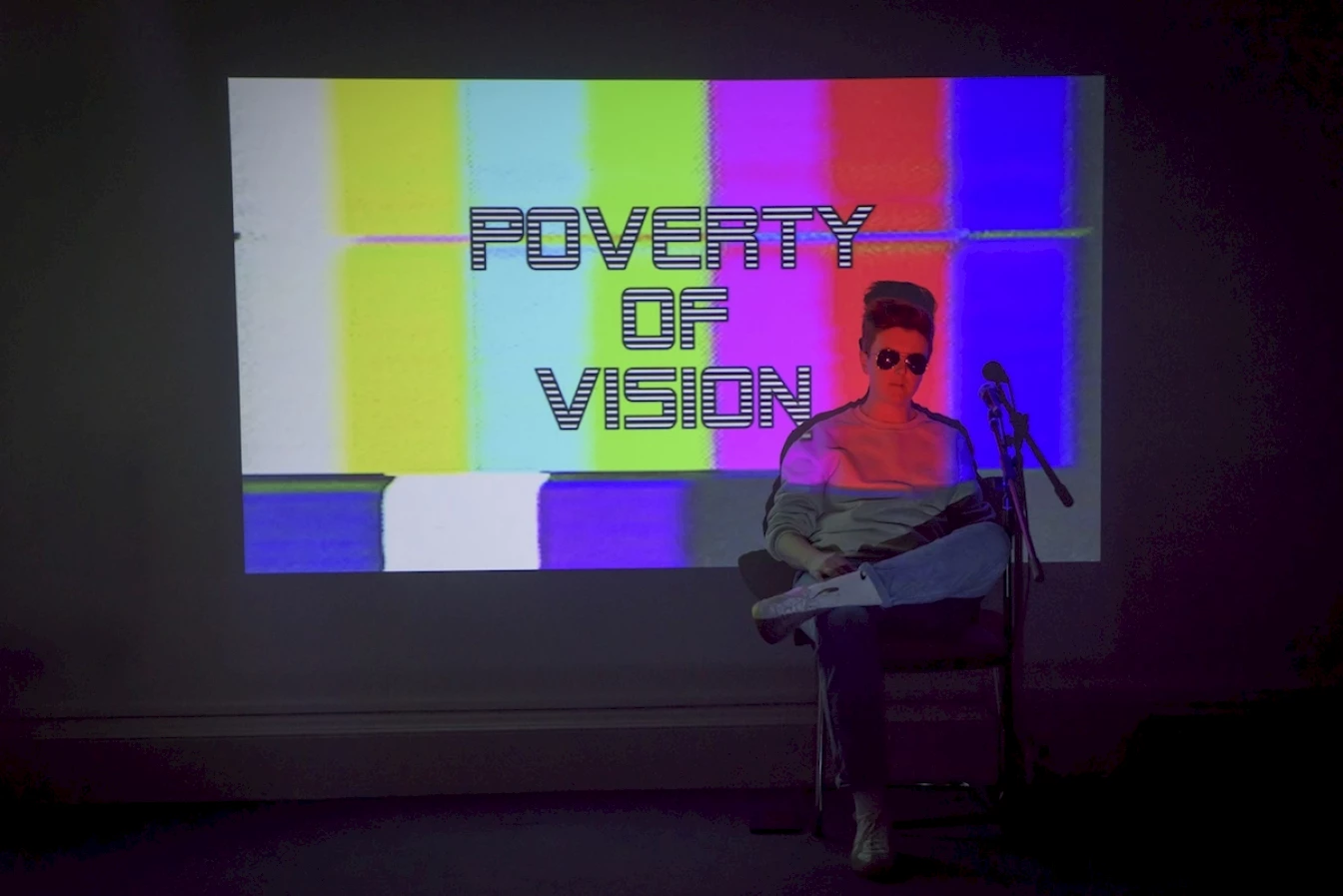
Emma Haugh, Poverty of Vision, 2017. Performance, 39:30 minutes. Commissioned by the Irish Museum of Modern Art & National Irish Visual Artists Library as part of ROSC 50 / 1967–2017. Photo: Louis Haugh. Courtesy the artist.
Similarly, artist Emma Haugh claims, "Looking into archives is like looking into dry cracks, aggravating holes, frustrated orifices... Looking into archives is all about looking at what isn't there. A disparity variation worker, a reflective stopgap heritage worker. An un-facting the facts worker".3
These rigorous practices of attention and suspicion are animated within diverse disciplines. In 2016, journalists Ellen Coyne and Catherine Sanz uncovered a scandal concerning rogue crisis pregnancy counselling agencies with links to Catholic anti-abortion groups. Counsellors were lying to women seeking their services, making claims such as a causal link between abortion and breast cancer, and predicting a range of negative side-effects of abortion, including "frigidity, crying, sighing, constant swallowing, an intense interest in babies, helplessness, a preoccupation with death, loss of organs, seizures, future child abuse, a compulsion to end relationships, lower self-esteem, feeling dehumanized and exploited, a lack of confidence in decision-making, insomnia, nightmares, nervousness and guilt" (Coyne & Sanz 2016). Feminist activism arose in the theatre community, beginning online as #WakingTheFeminists. This movement drew attention to the gender bias in the 2016 programme of The Abbey Theatre (the national theatre) in Dublin in the year of commemorating the foundation of the state: only one of ten newly commissioned plays was authored by a woman, and only three had women as directors. #WakingTheFeminists explicitly addressed the theatre as an institution of symbolic representation and storytelling that is key to the national identity. Over a year's activity, the campaign commissioned empirical research which revealed a "significant gender problem" in Irish theatre and led to major policy changes in many cultural organisations, as well as the wider discourse (Donohue, O'Dowd, Dean, Murphy, Cawley & Harris 2017).
While the struggle to repeal the Eighth Amendment is concerned with reproductive bodies, the campaign is itself also a key agent enmeshed in the reproduction of feminist knowledge and tactics of resistance. As a grassroots campaign, it is incredibly creative and has developed its own vibrant visual culture. The banners made by Alice Maher, Rachel Fallon, Sarah Cullen, Breda Mayock and Áine Philips as part of the Artists' Campaign are situated in this context.4 The jumpers of the Repeal Project, founded by Anna Cosgrave, have proved to be both an iconic statement of solidarity and a fundraiser for the Abortion Rights Campaign. There are also the many handmade signs, banners, jewellery pieces, badges and stickers produced by people who would not consider themselves artists at all – all this ephemera materialises a huge contribution to feminist activism. What will happen to this material when the campaign is over after the referendum on 25 May?
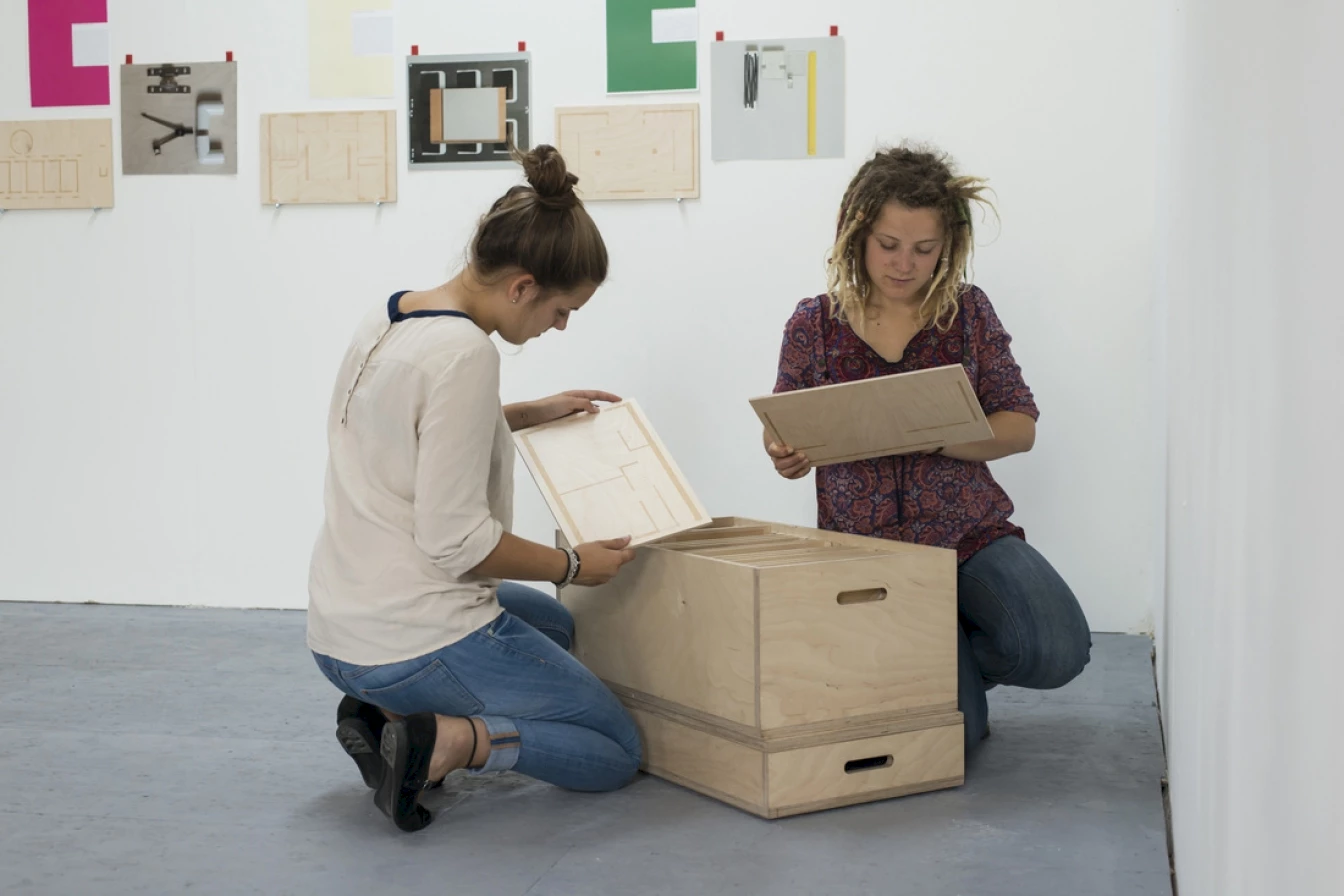
Anne Tallentire, From, in and with (2014). Box with 24 plan-panels, birch ply, 394 x 394 x 680 mm, 24 c-type photographs 320 x 320 mm, 24 commissioned ‘100 word’ texts printed in an accompanying publication by Alice Casey, Culturstruction, Grainne Hassett, Ruth Morrow, Jane Rendell, and Ellen Rowley (women architects working in Ireland). Commissioned by the National Women’s Council as part of Still, We Work, curated by Val Connor. Installation view at Callan Workshouse Union. Photo: Brian Cregan.
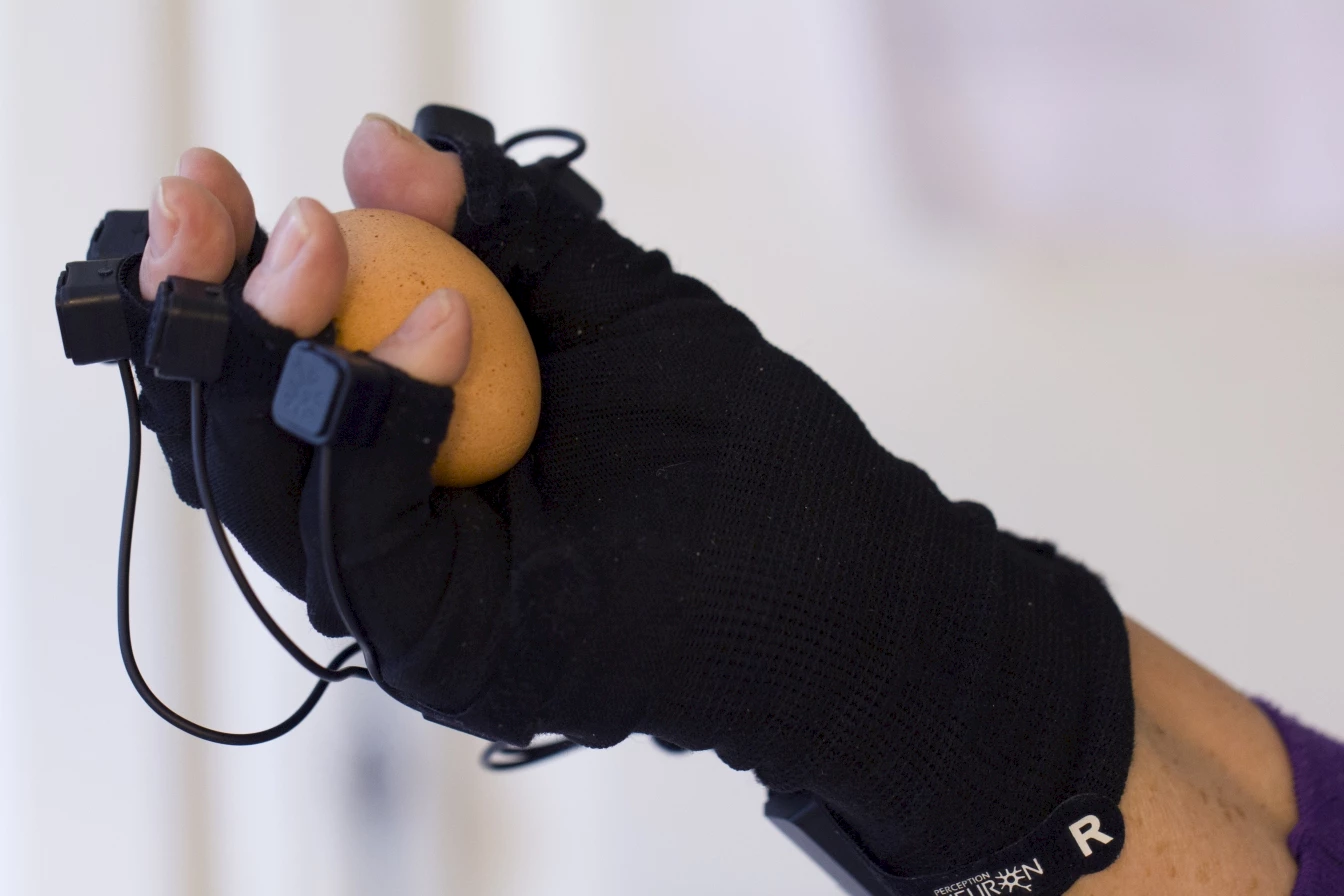
Caroline Campbell (Loitering Theatre), The Feeling of Power (2018). Production photograph from a current project collecting a ‘dataset of feminist radical gestures’ in collaboration with Irish feminists, active from the 1970s onwards.
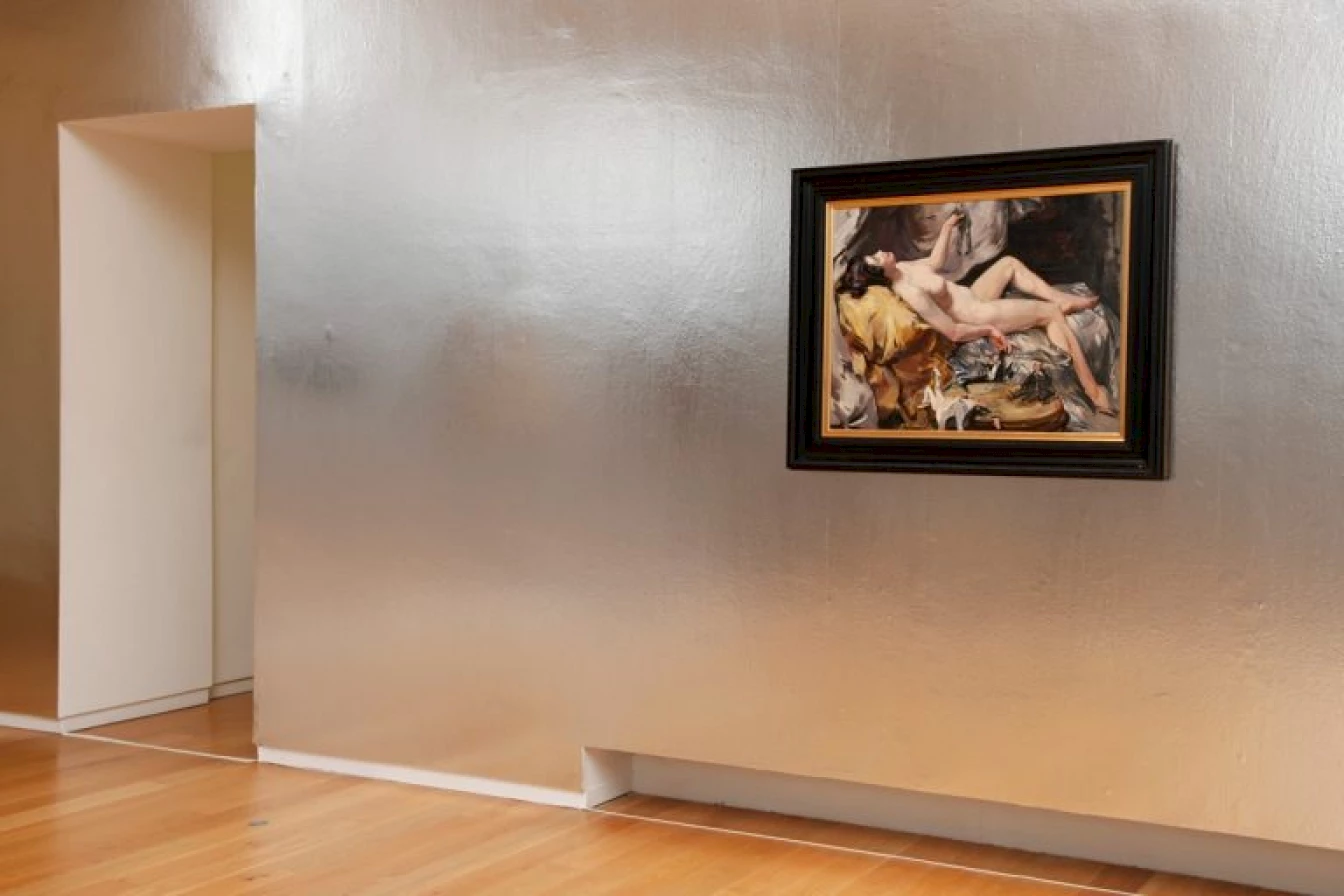
Isobel Gloag, The Woman with the Puppets, oil on canvas, c. 1915. Exhibited as part of NO MORE FUN AND GAMES, a solo exhibition by Jesse Jones at Dublin City Gallery Hugh Lane, that involved the collective curation of an all-female exhibition from the collection by a feminist collective initiated by Jones, establishing a ‘Feminist Parasite Institution’. Photo: Miriam O’Connor. Courtesy the artist.
Sara Ahmed describes feminist practice in terms of a politics of citation, where citation acts as a successful reproductive technology: "Citation is feminist memory. It is how we leave a trail of where we have been and who helped us along the way" (Ahmed 2015). Acknowledging and constructing genealogies of feminism through citational practices is also part of the work of producing more just forms of knowledge and intellectual work: Ahmed describes how citations are metaphorical 'feminist bricks', the material and practice to construct alternative dwellings. It is also important to consider the necessity of the actual bricks and mortar that construct feminist classrooms and libraries, especially in Ireland since the dismantling of equality infrastructure as part of austerity measures from 2009 onwards (Barry & Conroy 2014). We have a deep tradition of feminist activism and scholarship here, a moving and embodied history. However, we can't expect individual bodies alone to undertake the responsibility of being living encyclopaedias for each other, performing this kind of reproductive knowledge-work between generations. As Tina Kinsella has pointed out, older women alive now who survived symphysiotomy and Magdalene laundries, "will soon no longer be able to bear witness to their own past and yet their past continues to press upon us" (Kinsella 2016). The lessons learnt through the current, and previous, campaigns need to be preserved beyond individuals and the generational lifespan. It is a question of survival.
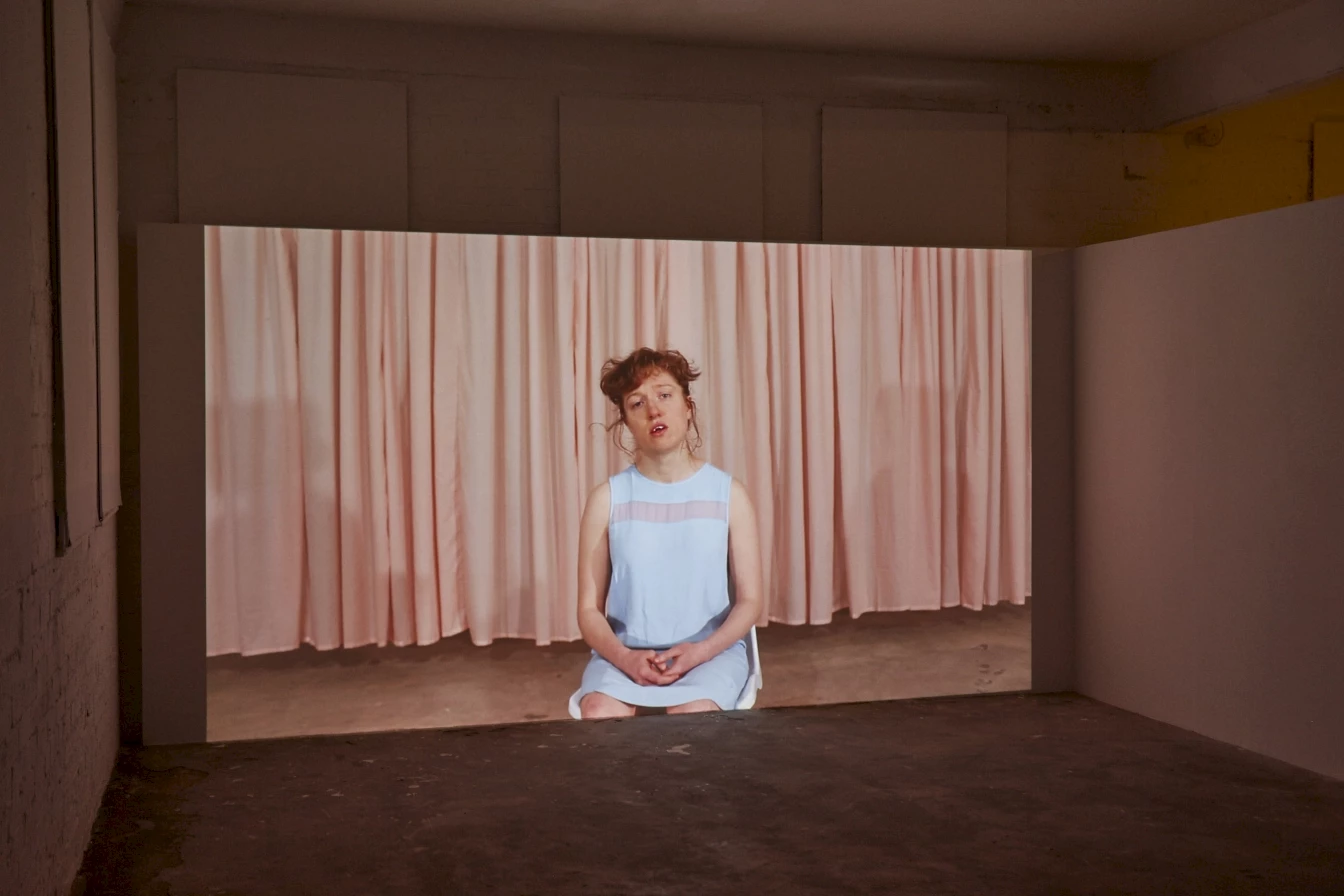
Saoirse Wall, Sticky Encounter, 2016. HD video, 6 minutes. Exhibited at Knowledge and Other Myths, Platform, Belfast. Group exhibition co-curated by Saoirse Wall, Tara McKeon, Kerry Guinan, Avril Corroon, Eimear Walshe, and Renèe Helèna Browne. Photo/courtesy the artist.
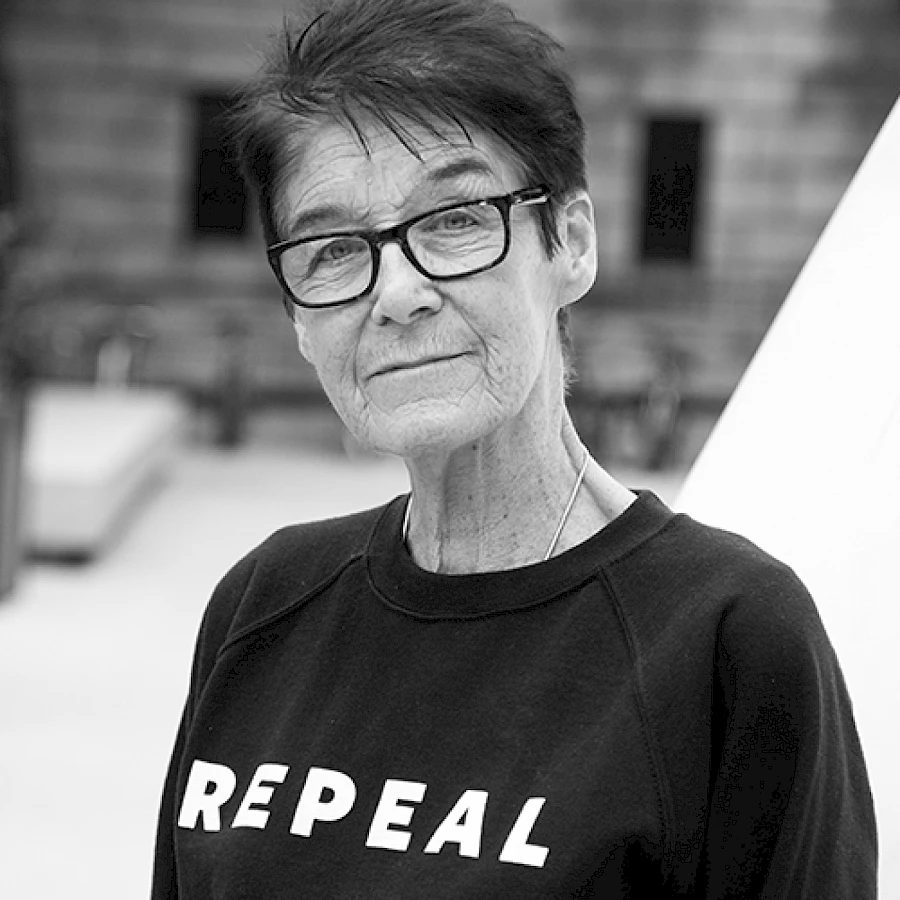
Ailbhe Smyth, founding director of the Women's Education, Resource and Research Centre (WERRC), University College Dublin (UCD) and convenor for the Coalition to Repeal the Eighth Amendment. Photographed wearing Repeal Project jumper, conceived and designed by Anna Cosgrave. Photo: Becks Butler. Courtesy Repeal Project.
Spaces of feminist activism and collaboration offer us a place to hold "paradox, contradiction and difference... to challenge beliefs we might be ashamed to admit elsewhere".5 Canonical structures are imperfect and exclusions, accidental or deliberate, persist: feminist classrooms and libraries aren't necessarily different. But the knowledge produced by this shifting 'we', this constantly changing coalition, needs a place to be cared for and accessed as resource, an institution of our own. Feminist work is ongoing, persistent and constant. It demands a re-distribution of power, which involves an attention to reworking our intellectual traditions, to creating an emancipatory approach to the history of knowledge and ideas. In the (collective) endurance sport par excellence of feminist labour and education, Ireland has a great many champions. Whatever the result outcome of the referendum in May, we need a Feminist Library to house, transmit and continually transform this knowledge.
References:
Ahmed, S. 2015, "Feminist Shelters", feministkilljoys, 30 December, viewed 21 April 2018.
Barry, U. and Conroy, P. 2014, "Ireland in Crisis: Women, austerity and inequality", in Karamessini, M. & Rubery, J. (eds), Women and austerity: the economic crisis and the future for gender equality, Routledge, London.
Coyne, E. & Sanz, C. 2016, "Foetuses feel more pain than adults, says counsellor", The Times, Ireland edition, viewed 18 April 2018.
D'Arcy, K. (ed.) 2018, Autonomy, New Binary Press, Cork.
Donohue, B. O'Dowd, C. Dean, T. Murphy, C. Cawley, K. & Harris, K. 2017, Gender Counts: an analysis of gender in Irish theatre, 2006–15, #WakingTheFeminists, Dublin, viewed 1 December 2017.
Godson, L. 2017, "Solemn and Bedazzling", The Visual Artists' Newsheet, no. 6, Dublin, viewed 15 April 2018.
Kinsella, T. 2016, "The Touching Contract: 'Affectosphere' to 'Affectivism'", Artangel. London, viewed 15 April 2018.
McGrattan, C. 2016, "Hidden Histories: Queer Women of The 1916 Rising", Gay Community News [online], viewed 21 April 2018.
Mullally, U. (ed.) 2018, Repeal the 8th Anthology, Unbound, Dublin.
Rossiter, A. 2009, Ireland's Hidden Diaspora: The 'Abortion Trail' and the Making of a London-Irish Underground, 1980–2000, IASC Publishing, London.